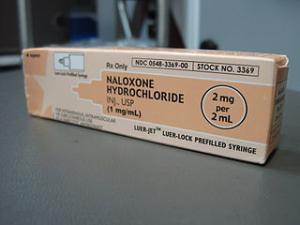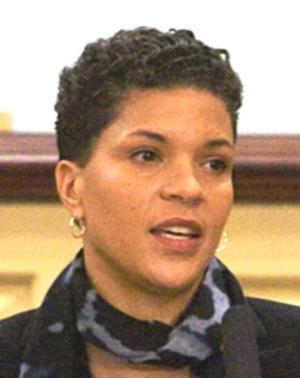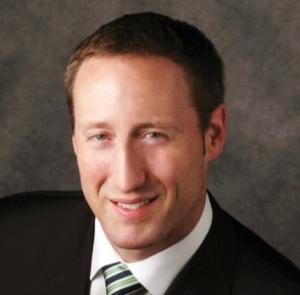Attorney General Holder's remarks on combating heroin overdoses Monday contain some steps in the right direction, but don't go far enough, drug reformers said.
On Thursday, Michelle Alexander, author of the best-selling and galvanizing "The New Jim Crow: Mass Incarceration in the Age of Colorblindness" sat down with poet/activist Asha Bandele of the Drug Policy Alliance to discuss the book's impact and where we go from here. It's a discussion worth reading.
The District of Columbia Board of Elections announced this morning that it had approved a marijuana legalization initiative for signature-gathering. That means voters in the nation's capital could vote to free the weed in November.
Marijuana and epilepsy are in the news, Sanjay Gupta strikes again, and state houses across the country are grappling with medical marijuana and CBD bills.
An Indianpolis SWAT team drug raid left one man dead and four police officers injured, and the police chief promises more.
More prison guards gone bad, another Philadelphia cop gets in trouble, a Kentucky narc has problems, and a DC-area cop gets her hand slapped.
Oregon's medical marijuana dispensary regulation bill has gone back to the Senate with compromise language allowing only temporary local bans, a GOP US Senate candidate there says legalize it, Chuck Schumer fights heroin, Canada's Tories look to be going soft on pot law enforcement, and more.
Oregon's medical marijuana dispensary regulation bill has passed the legislature with only temporary local bans allowed, more CBD medical marijuana bills are moving, an Indiana hemp bill has passed the legislature, and more.
California's Democrats endorse marijuana legalization, Caricom gets ready to talk marijuana, Attorney General Holder calls for expanded access to naloxone to prevent overdose deaths, legislatures in the Pacific Northwest make moves on medical marijuana, and more.
The District of Columbia could legalize marijuana at the ballot box this year, Dr. Sanjay Gupta doubles down on his support for medical marijuana with a new CNN special tonight, the UN Commission on Narcotic Drugs meeting this week in Vienna is attracting a lot of attention, and more.
Medical marijuana is keeping state legislators busy, Maine's governor has a 20th Century approach to drug problems, New Mexico's governor cuts funds to a diversion program, Indonesia shifts its stance on drug users, and more.
US Attorney General Eric Holder had heroin on his mind Monday, using his weekly video message and an accompanying press release to draw attention to rising heroin overdose deaths and vowing to combat the problem with a combination of law enforcement, treatment, prevention, and harm reduction measures. Drug reformers generally responded positively, but called on the Obama administration to seek comprehensive, science- and health-based solutions instead of engaging in more drug war.

Attorney General Holder takes on heroin (usdoj.gov)
"Addiction to heroin and other opiates -- including certain prescription pain-killers -- is impacting the lives of Americans in every state, in every region, and from every background and walk of life -- and all too often, with deadly results. Between 2006 and 2010, heroin overdose deaths increased by 45%," Holder said. "Scientific studies, federal, state and local investigations, addiction treatment providers, and victims reveal that the cycle of heroin abuse commonly begins with prescription opiate abuse. The transition to -- and increase in -- heroin abuse is a sad but not unpredictable symptom of the significant increase in prescription drug abuse we've seen over the past decade."
What Holder didn't mention is that the rise in prescription pain pill misuse is tied to a massive increase in prescribing opioids for pain in the past decade. A study published last fall found that between 2000 and 2010, the amount of opioids prescribed for non-cancer pain had nearly doubled, and that during the same period, the percentage of people complaining of pain who received prescriptions for opioids jumped from 11% to nearly 20%. But reining in prescriptions generally isn't the answer either.
But at the same time, a 2011 Institute of Medicine report found that while "opioid prescriptions for chronic non-cancer pain [in the US] have increased sharply… 29% of primary care physicians and 16% of pain specialists report they prescribe opioids less often than they think appropriate because of concerns about regulatory repercussions."
As the IOM report noted, having more opioid prescriptions doesn't necessarily mean that "patients who really need opioids [are] able to get them." Opioid misuse and under-use of opioids for pain treatment when they are needed are problems that coexist in society. Pain pill crackdowns have also been found to result in increased use of street heroin, as a Washington Post article last week reports -- two additional reasons advocates prefer public health approaches to heroin more than law enforcement -- and why great care should be taken with the law enforcement measures.
"It's clear that opiate addiction is an urgent -- and growing -- public health crisis. And that's why Justice Department officials, including the DEA, and other key federal, state, and local leaders, are fighting back aggressively," Holder continued. "Confronting this crisis will require a combination of enforcement and treatment. The Justice Department is committed to both."
Holder pointed to DEA efforts to prevent diversion of pharmaceutical pain-relievers to non-medical users, mentioning investigations of doctors, pharmacists, and distributors.
"With DEA as our lead agency, we have adopted a strategy to attack all levels of the supply chain to prevent pharmaceutical controlled substances from getting into the hands of non-medical users," Holder said.

Cooking heroin (wikimedia.org)
Holder also pointed out that DEA had opened some 4,500 heroin investigations since 2011 and promising more to come.
But, as Holder noted, "enforcement alone won't solve the problem," so the administration is working with civil society and law enforcement "to increase our support for education, prevention, and treatment."
And although he didn't use the words "harm reduction," Holder is also calling for some harm reduction measures. He urged law enforcement and medical first responders to carry the overdose reversal drug naloxone (Narcan) and signaled support for "911 Good Samaritan" laws, which grant immunity from criminal prosecution to those seeking medical help for someone experiencing an overdose.
Holder got restrained plaudits from drug reformers for his small steps toward harm reduction measures, but they called for a more comprehensive approach.
"Preventing fatal overdose requires a comprehensive solution," said Meghan Ralston, harm reduction manager for the Drug Policy Alliance. "While naloxone is an absolutely critical component, we need a scientific, health-based approach to truly address the roots of the problem. This includes improving access to effective, non-coercive drug treatment for everyone who wants it, as well as improving access to medication-assisted treatments such as methadone and buprenorphine."

Naloxone (Narcan) can reverse opiate overdoses (wikimedia.org)
Ralston also added that just making
naloxone available to cops and
EMTs wasn't good enough. Friends and family members, not "first responders," are most often the people who encounter others in the throes of life-threatening overdoses.
"While we applaud Attorney General Holder's clear support for expanding access to naloxone, particularly among law enforcement and 'first responders,' we urge him to clarify that he supports naloxone access for anyone who may be the first person to discover an opiate overdose in progress," she said.
But Law Enforcement Against Prohibition (LEAP), a group of law enforcement officials opposed to the war on drugs, applauded the move, which could help soften reflexive law enforcement opposition to carrying the overdose antidote, an attitude reflected in the the International Association of Chiefs of Police's opposition to all harm reduction measures.
"Police may not be the first to embrace change, but we are slowly evolving," said Lieutenant Commander Diane Goldstein (Ret.). "We cannot arrest our way out of a public health problem, and it's clear that the Attorney General is beginning to understand that and to embrace the role of harm reduction in reducing death, disease and addiction in our communities. We still have a long way to go, but this is a good sign."
The idea is "a no-brainer," according to executive director Major Neill Franklin (Ret.). "It is simply immoral not to support something proven to save lives for political reasons," Franklin added. "Yes, police send a message when they choose not to carry naloxone. But that message is not 'don't do drugs,' it's 'if you make the wrong decisions in your life, we don't care about you.' That offends me both as a former cop and as a human being."
The nuanced pushback to Holder's law enforcement/prevention/treatment/hint of harm reduction approach is good as far as it goes, but it doesn't go far enough. Decriminalizing and destigmatizing now illicit drug use, as has been the case in Portugal, is an obvious next step, and removing the question of drugs from the purview of the criminal justice system altogether would be even better. Still, that a sitting attorney general is calling for treatment and harm reduction as well as law enforcement is a good thing, and for reformers to be calling him on not going far enough is a good thing, too.
back to top
On Thursday, Michelle Alexander, author of the best-selling and galvanizing The New Jim Crow: Mass Incarceration in the Age of Colorblindness sat down with poet/activist Asha Bandele of the Drug Policy Alliance to discuss the book's impact and where we go from here.

Michelle Alexander (wikimedia.org)
has been a phenomenon. Spending nearly 80 weeks on
The New York Times bestseller list, it brought to the forefront a national conversation about why the United States had become the world's largest incarcerator, with 2.2 million in prison or jail and 7.7 million under control of the criminal justice system, and African American boys and men -- and now women -- making up a disproportionate number of those imprisoned. Alexander identified failed drug war policies as the primary driver of those numbers, and called for a greater challenge to them by key civil rights leaders.
It's now been nearly four years since The New Jim Crow first appeared. Some things have changed -- federal sentencing reforms, marijuana legalization in two states -- but many others haven't. Alexander and Bandele discuss what has changed, what hasn't, and what needs to, raising serious questions about the path we've been down and providing suggestions about new directions.
Audio of the conversation is online here, and a transcript follows here:
Asha Bandele: The US has 5% of the world's population, but has 25% of the world's incarcerated population, and the biggest policy cause is the failed drug war. How has the landscape changed in the last four years since The New Jim Crow came out?
Michelle Alexander: The landscape absolutely has changed in profound ways. When writing this book, I was feeling incredibly frustrated by the failure of many civil rights organizations and leaders to make the war on drugs a critical priority in their organization and also by the failure of many of my progressive friends and allies to awaken to the magnitude of the harm caused by the war on drugs and mass incarceration. At the same time, not so long ago, I didn't understand the horror of the drug war myself, I failed to connect the dots and understand the ways these systems of racial and social control are born and reborn.
But over last few years, I couldn't be more pleased with reception. Many people warned me that civil rights organizations could be defensive or angered by criticisms in the book, but they've done nothing but respond with enthusiasm and some real self-reflection.
There is absolutely an awakening taking place. It's important to understand that this didn't start with my book -- Angela Davis coined the term "prison industrial complex" years ago; Mumia Abu-Jamal was writing from prison about mass incarceration and our racialized prison state. Many, many advocates have been doing this work and connecting the dots for far longer than I have. I wanted to lend more credibility and support for the work that so many have been doing for some, but that has been marginalized.
I am optimistic, but at the same time, I see real reasons for concern. There are important victories in legalizing marijuana in Colorado and Washington, in Holder speaking out against mandatory minimums and felon disenfranchisement, in politicians across the country raising concerns about the size of the prison state for the first time in 40 years, but much of the dialog is still driven by fiscal concerns rather than genuine concern for the people and communities most impacted, the families destroyed. We haven't yet really had the kind of conversation we must have as a nation if we are going to do more than tinker with the machine and break our habit of creating mass incarceration in America.
Asha Bandele: Obama has his My Brother's Keeper initiative directed at black boys falling behind. A lot of this is driven by having families and communities disrupted by the drug war. Obama nodded at the structural racism that dismembers communities, but he said it was a moral failing. He's addressed race the least of any modern American president. Your thoughts?
Michelle Alexander: I'm glad that Obama is shining a spotlight on the real crisis facing black communities today, in particular black boys and young men, and he's right to draw attention to it and elevate it, but I worry that the initiative is based more in rhetoric than in a meaningful commitment to addressing the structures and institutions that have created these conditions in our communities. There is a commitment to studying the problem and identifying programs that work to keep black kids in school and out of jail, and there is an aspect that seeks to engage foundations and corporations, but there is nothing in the initiative that offers any kind of policy change from the government or any government funding of any kind to support these desperately needed programs.
There is an implicit assumption that we just need to find what works to lift people up by their bootstraps, without acknowledging that we're waging a war on these communities we claim to be so concerned about. The initiative itself reflects this common narrative that suggests the reasons why there are so many poor people of color trapped at the bottom -- bad schools, poverty, broken homes. And if we encourage people to stay in school and get and stay married, then the whole problem of mass incarceration will no longer be of any real concern.
But I've come to believe we have it backwards. These communities are poor and have failing schools and broken homes not because of their personal failings, but because we've declared war on them, spent billions building prisons while allowing schools to fail, targeted children in these communities, stopping, searching, frisking them -- and the first arrest is typically for some nonviolent minor drug offense, which occurs with equal frequency in middle class white neighborhoods but typically goes ignored. We saddle them with criminal records, jail them, then release them to a parallel universe where they are discriminated against for the rest of their lives, locked into permanent second-class status.
We've done this in the communities most in need our support and economic investment. Rather than providing meaningful support to these families and communities where the jobs have gone overseas and they are struggling to move from an industrial-based economy to a global one, we have declared war on them. We have stood back and said "What is wrong with them?" The more pressing question is "What is wrong with us?"
Asha Bandele: During the Great Depression, FDR had the New Deal, but now it seem like there is no social commitment at the highest levels of government. And we see things like Eric Holder and Rand Paul standing together to end mandatory minimums. Is this an unholy alliance?
Michelle Alexander: We have to be very clear that so much of the progress being made on drug policy reflects the fact that we are at a time when politicians are highly motivated to downsize prisons because we can't afford the massive prison state without raising taxes on the predominantly white middle class. This is the first time in 40 years we've been willing to have a serious conversation about prison downsizing.
But I'm deeply concerned about us doing the right things for the wrong reasons. This movement to end mass incarceration and the war on drugs is about breaking the habit of forming caste-like systems and creating a new ethic of care and concern for each of us, this idea that each of us has basic human rights. That is the ultimate goal of this movement. The real issue that lies at the core of every caste system ever created is the devaluing of human beings.
If we're going to do this just to save some cash, we haven't woken up to the magnitude of the harm. If we are not willing to have a searching conversation about how we got to this place, how we are able to lock up millions of people, we will find ourselves either still having a slightly downsized mass incarceration system or some new system of racial control because we will have not learned the core lesson our racial history is trying to teach us. We have to learn to care for them, the Other, the ghetto dwellers we demonize.
Temporary, fleeting political alliances with politicians who may have no real interest in communities of color is problematic. We need to stay focused on doing the right things for the right reasons, and not count as victories battles won when the real lessons have not been learned.
Asha Bandele: Portugal decriminalized all drugs and drug use has remained flat, overdoses been cut by a third, HIV cut by two-thirds. What can we learn from taking a public health approach and its fundamental rejection of stigma?
Michelle Alexander: Portugal is an excellent example of how it is possible to reduce addiction and abuse and drug related crime in a non-punitive manner without filling prisons and jails. Supposedly, we criminalize drugs because we are so concerned about the harm they cause people, but we wind up inflicting far more pain and suffering than the substances themselves. What are we doing really when we criminalize drugs is not criminalizing substances, but people.
I support a wholesale shift to a public health model for dealing with drug addiction and abuse. How would we treat people abusing if we really cared about them? Would we put them in a cage, saddle them with criminal records that will force them into legal discrimination the rest of their lives? I support the decriminalization of all drugs for personal use. If you possess a substance, we should help you get education and support, not demonize, shame, and punish you for the rest of your life.
I'm thrilled that Colorado and Washington have legalized marijuana and DC has decriminalized it -- these are critically important steps in shifting from a purely punitive approach. But there are warning flags. I flick on the news, and I see images of people using marijuana and trying to run legitimate businesses, and they're almost all white. When we thought of them as black or brown, we had a purely punitive approach. Also, it seems like its exclusively white men being interviewed as wanting to start marijuana businesses and make a lot of money selling marijuana.
I have to say the image doesn't sit right. Here are white men poised to run big marijuana businesses after 40 years of impoverished black kids getting prison time for doing the same thing. As we talk about legalization, we have to also be willing to talk about reparations for the war on drugs, as in how do we repair the harm caused.
With regard to Iraq, Colin Powell said "If you break it, you own it," but we haven't learned that basic lesson from our own racial history. We set the slaves free with nothing, and after Reconstruction, a new caste system arose, Jim Crow. A movement arose and we stopped Jim Crow, but we got no reparations after the waging of a brutal war on poor communities of color that decimated families and fanned the violence it was supposed to address.
Do we simply say "We're done now, let's move on" and white men can make money? This time, we have to get it right; we have to tell the whole truth, we have to repair the harm done. It's not enough to just stop. Enormous harm had been done; we have to repair those communities.
back to top
The District of Columbia Board of Elections announced this morning that it had approved a marijuana legalization initiative for signature-gathering. That means voters in the nation's capital could vote to free the weed in November.
The Board rejected warnings from the city's attorney general, who said that the initiative would put DC in conflict with federal law if it passed.
Now, the DC Cannabis Campaign must gather some 25,000 signatures to qualify for the November ballot. But first, the Board of Elections must finalize the language for the measure. It has 20 days to do so.
The initiative would allow people 21 and over to possess up to two ounces of marijuana and grow up to three plants at home. If approved by the voters, it would still have to get an okay from Congress, which blocked the District's 1999 medical marijuana from being implemented for more than a decade. But that was a different era.
The initiative appears well-placed to win if it goes before the voters. A Washington Post poll in January had support for legalization at 63%, above the 60% comfort margin usually desired by initiative watchers at the beginning of a campaign.
Alaska voters are already set to vote on a legalization initiative there in August, and efforts are underway in the other most likely 2014 initiative state, Oregon, to get a measure on the November ballot there.
back to top
Marijuana and epilepsy are in the news, Sanjay Gupta strikes again, and state houses across the country are grappling with medical marijuana and CBD bills. Let's get to it:
NationalLast week, GW Pharmaceuticals announced that the FDA had granted orphan drug designation to a cannabis-based drug developed to treat childhood-onset epilepsy, The drug, called Epidiolex, contains a highly purified, plant-derived form of cannabidiol (CBD), a non-psychoactive compound found in marijuana that doesn't produce the "high" sensation associated with THC, the plant's main psychoactive ingredient. CBD has long been used as a treatment for Dravet syndrome, a rare and severe form of epilepsy in children, and GW Pharmaceuticals sees Epidiolex as useful in treating both Dravet and Lennox-Gastaut syndrome (LGS), another rare form of childhood epilepsy.
On Tuesday, CNN's Dr. Sanjay Gupta aired a new special on medical marijuana. The special, Weed 2: Cannabis Madness: Dr. Sanjay Gupta Reports was preceded by an op-ed in which Gupta "doubled down" on his support for medical marijuana.
On Wednesday, the AHP released a scientific review on epilepsy. The American Herbal Pharmacopoeia released Cannabis in the Treatment of Epilepsy, which compiles much of the leading and historical research on epilepsy and cannabis (medical marijuana) for use by scientists, physicians, patients, and parents, as well as those producing and manufacturing it for treatment.
Alabama
On Tuesday, a revised CBD Medical Marijuana bill passed the state Senate. The bill, Senate Bill 174 was revised by its sponsors so that the University of Alabama-Birmingham could conduct a research study. It now moves to the House.
California
On Monday, the LA city attorney said 100 dispensaries had been shuttered since the city started enforcing new rules restricting them. City Attorney Mike Feuer said that besides enforcing the rules, the city had also successfully fended off legal challenges. The city attorney said he couldn't say how many marijuana dispensaries are now open in Los Angeles, since there is no permitting process for the shops. Before the measure passed last spring, police estimated roughly 700 dispensaries were operating, though others pegged the number far higher.
On Tuesday, a bill to further restrict dispensary locations died in committee. The measure, Assembly Bill 1588, would have widened "dispensary free" zone around schools from 600 feet to 1,000 feet, but was been blocked in the Assembly Public Safety Committee, Assembly Minority Leader Connie Conway (R-Tulare) said Tuesday. Conway is the author of the bill in question.
Also on Tuesday, the DEA and LAPD raided and closed four dispensaries. They hit the Black Rose dispensary in Fairfax, Downtown Medical Caregivers off Main Street, Washington and Western Medical Group in Harvard Heights, Herbman in Exposition Park and two homes in Beverly Hills. The same person owns all the dispensaries, the DEA said.
Also on Tuesday, Los Angeles reported it had collected $1.6 million in taxes from dispensaries for 2013.
Also on Tuesday, the San Diego city council gave final approval to medical marijuana regulations. Under the ordinances, dispensary operators must get conditional-use permit from the city -- which will be good for five years -- and an annual public safety permit from the San Diego Police Department. Collectives may not be within 1,000 feet of public parks, churches, child care centers, playgrounds, residential care facilities, schools and other dispensaries, and not be within 100 feet of residential zones. Dispensaries also are barred from having on-site medical professionals -- a law intended to prevent such businesses from becoming "one-stop shops." This should mark an end to a three-year battle that began after the council passed more restrictive regulations in 2011.
On Wednesday, San Bernardino SWAT teams raided two dispensaries. Little more is known at this point.
Michigan
Last Friday, state regulators recommended added PTSD as a qualifying condition. The Michigan Medical Marihuana Review Panel appointed by the Department of Licensing and Regulatory Affairs has decided to recommend that the department add PTSD to the list of qualifying conditions for medical marijuana. It is now up to Steve Arwood, Director of the Department of Licensing and Regulatory Affairs, to accept or reject the recommendation.
On Tuesday, a pair of medical marijuana bills got a hearing. Two bills that would legalize the manufacture and sale of medical marijuana-infused products such as brownies and oils and permit communities to allow and regulate marijuana dispensaries in their towns got a hearing in the Senate Government Operations Committee hearing Tuesday, but no vote. Committee chair and Senate Majority Leader Randy Richardville (R-Monroe) is not expected to schedule another hearing for at least a couple of weeks. The bills are House Bill 5104 and House Bill 4271.
Also on Tuesday, the Howell city council approved a dispensary moratorium. Council members said they were waiting for clarity from the state legislature.
New Hampshire
On Friday, the House passed a medical marijuana home cultivation bill. The measure, House Bill 1622, would allow patients and/or caregivers to grow up to two plants until dispensaries open near their residences. The bill now goes to the state Senate.
New Jersey
Last Friday, the health department said it would not consider expanding its qualifying disease list until 2015. The state's medical marijuana law, signed four years ago, required the health department to consider adding new diseases requested by the public after it submitted two annual reports, beginning in 2011, charting the program's progress. But it is too soon to add more illnesses and place greater demands on the program, Health Department Commissioner Mary O'Dowd's spokeswoman Donna Leusner said.
New York
On Monday, Assembly Democrats rolled a medical marijuana bill into this week's budget proposal. The move is designed to get some traction for medical marijuana, which has been stymied for years in the state Senate.
Oregon
Last Thursday, the Medford city council voted for a moratorium on dispensaries. But it will take another vote, on a second reading of the bill, to enact it formally. The city argues that despite state action, marijuana is still illegal under federal law. Last fall, it revoked the business license of Mary Jane's Attic and Mary Jane's Basement, located in a shopping center.
Last Friday, the Senate gave final approval to the statewide dispensary regulation bill. The final version of the bill gives local governments the ability to ban dispensaries, but only for one year. The bill now goes to Gov. John Kitzhaber (D), who has not said whether he will sign it.
On Tuesday, state officials said 281 dispensaries began the process of registering with the state. A new law, passed in 2013, directed the Oregon Health Authority to create a registry of medical marijuana facilities. Those facilities must follow security and testing rules and they have to carefully track the marijuana coming in and out of their stores. The state, meanwhile, has two regulators who will inspect the establishments annually.
South Carolina
Last Thursday, a CBD medical marijuana bill won a House committee vote. The bill calls for clinical trials of a CBD-based drug and would also allow doctors to prescribe CBD oil pharmaceuticals, although it's unclear whether all doctors would be able to do so.
Utah
On Tuesday, the state Senate passed a CBD medical marijuana bill. The bill would allow compassionate use of non-intoxicating cannabis oil by Utahns with untreatable epilepsy. It passed the Senate by a wide margin, despite reservations some senators have about the oil's safety and long term benefits. House Bill 105 now goes back to the House, which had already passed it, but now must sign off on changes in the Senate version.
Vermont
On Wednesday, the state Senate passed a medical marijuana expansion bill. The bill lifts the 1,000-patient cap on the state's dispensaries and authorizes two more dispensaries. Senate Bill 247 now heads to the House.
Washington
On Saturday, the state Senate approved a bill regulating dispensaries as part of an effort to roll the medical marijuana system into the state's new legal marijuana system. The current unregulated dispensaries would have to close or obtain a state license by September 2015. The bill also allows patients to grow their own, but reduced the amount they can grow and possess. Senate Bill 5887 now goes to the House. The legislative session ends this week.
[For extensive information about the medical marijuana debate, presented in a neutral format, visit MedicalMarijuana.ProCon.org.]
back to top
A drug suspect was killed and four SWAT officers were wounded Wednesday night when police in Indianapolis raided a Near Eastside home on a drug warrant. Andrew Sizemore, 27, becomes the 10th person to die in US domestic drug law enforcement operations so far this year.

Andrew Sizemore (IMPD)
According to
The Indianapolis Star, citing police sources, SWAT officers were serving a search warrant on a suspected drug operation when they were met by gunfire. Police shot back, killing Sizemore.
None of the injured officers were seriously wounded, and three had been released from the hospital by early Thursday.
Police said they seized heroin, 13 guns, and $120,000 in cash inside the house. Five people inside the house were arrested. Three were arrested for "visiting a common nuisance," while one was arrested on drug dealing charges and another was detained with no charges specified. Police also confiscated four vehicles.
The house was protected by surveillance cameras, which could have alerted occupants to the raiders' presence.
"That put our officers at a disadvantage, but they overcame it," said Indianapolis Public Safety Director Troy Riggs said, adding that the shootout could be a harbinger of things to come as police go after criminals. "None of us want these things to happen," Riggs said, "but at the end of the day with the the aggressiveness with which your police department is going after those who are committing criminal acts, this is always a possibility."
In a follow-up story, The Star reported that as word of Sizemore's death spread Thursday, friends and family members created a small shrine in his honor, leaving stuffed animals, flowers, a can of energy drink, a snack cake, and a candle. One sign on the shrine said: "RIP, Drew. We Love and Miss You." Another read: "There was no reason for him to die."
Sizemore had no criminal record except for an arrest for trespassing when he was 19.
The Star also reported that some neighborhood residents "were leery to comment" and "some were even hostile to reporters seeking information about the neighborhood and the people who lived in the house."
back to top
More prison guards gone bad, another Philadelphia cop gets in trouble, a Kentucky narc has problems, and a DC-area cop gets her hand slapped. Let's get to it:
In Tyler, Texas,
a Smith County jail guard was arrested Friday on charges he was smuggling contraband to inmates. Detention Officer
Keenon Daniels
Olison,
Jr., 24, went down after authorities received a tip and placed him under surveillance. He got caught with marijuana and tobacco, and is charged with multiple counts related to possessing a controlled substance in a detention facility with intent to deliver the controlled substance to an inmate and with delivery of contraband to inmates.
In Philadelphia, a Philadelphia police officer was arrested Friday and suspended with intent to dismiss after allegedly lying in court testimony about two drug arrests. Officer Steven Lupo, a six-year veteran, is accused of perjuring himself in one case by claiming he smelled burning marijuana, and in the second case by also claiming he smelled marijuana, then requested a search warrant. But surveillance video showed it didn't go down like that. He faces charges of perjury, false swearing, making false reports, and obstruction.
In Lexington, Kentucky, a former Franklin County sheriff's deputy was arrested Monday on charges he stole from the sheriff's office and people he raided and sold anabolic steroids. Matt Brown is accused of stealing more than $26,000 in cash and goods, most of during drug busts. He is charged with theft from a program that receives federal funds by misappropriation of drug money and seized property while he was a narcotics detective. He's also charged with three counts of trafficking in steroids. He out on his own recognizance while awaiting trial.
In Washington, DC, a former Prince Georges County, Maryland, police officer was sentenced Monday to four months house arrest and 26 months of probation for illegally sharing information about secret federal wiretaps used in a drug investigation. Vanessa Edwards-Hamm, 38, had pleaded guilty in December to alerting several people that law enforcement was monitoring the phone calls of people suspected of drug trafficking in DC after having been indicted last year along with more than a dozen other people in a ring accused of providing heroin, pain pills, cocaine, and other drugs.
In Fayetteville, West Virginia, a former federal prison guard was sentenced Monday to one-to-15 years in prisons for smuggling drugs into the Federal Correctional Institute Beckley. He had pleaded guilty in January to one count of delivery of a controlled substance.
back to top
Oregon's medical marijuana dispensary regulation bill has gone back to the Senate with compromise language allowing only temporary local bans, a GOP US Senate candidate there says legalize it, Chuck Schumer fights heroin, Canada's Tories look to be going soft on pot law enforcement, and more. Let's get to it:

Canadian Justice Minister Peter Mackay hints that something much like marijuana decriminalization is coming. (petermackay.ca)
Alaska Legalization Debate Draws Hundreds. A week after the Alaska marijuana legalization initiative was officially certified for the ballot, hundreds of people streamed into the Wendy Williamson Auditorium at the University of Alaska in Anchorage for a debate on marijuana policy. In an opening speech, Ethan Nadelmann of the Drug Policy Alliance called the war on drugs "a rat hole of waste" and that marijuana prohibition was "grounded in bigotry, prejudice, and ignorance." Then a panel of five people, including Nadelmann, as well as an anti-legalization Project Sam representative, went at it. Click on the title link for more.
Another Missouri Legalization Initiative Approved for Signature-Gathering. Missouri Secretary of State Jason Kander approved a marijuana legalization initiative for signature gathering Wednesday. This is not one of the initiatives filed by Show-Me Cannabis, which had a bakers' dozen of similarly-worded initiatives approved earlier this year, but has decided to wait until 2016 for its effort. The initiative has a May 4 deadline for handing in petitions, and must obtain signatures from registered voters equal to 8% of the total votes cast in the 2012 governor's election from six of the state's eight congressional districts.
Maryland Sheriffs Rally Against Legalization. Local sheriffs attended a rally in Annapolis to voice opposition to proposed legislation to decriminalize marijuana in Maryland Wednesday. Sheriffs from the Eastern Shore and local police chiefs attended a rally sponsored by the Maryland Sheriff's Association and its supporters. The sheriffs are taking a stand against legalizing marijuana in Maryland, as lawmakers ponder a legalization bill.
Oregon GOP US Senate Candidate Endorses Legalization. Portland attorney Tim Crawley, who is seeking the Republican US Senate nomination, favors marijuana legalization. In a press release this week, he said he had "long been concerned with the tremendous waste of money and human potential the criminalization of marijuana has involved." In a subsequent interview, Crawley said he would support a legalization initiative in Oregon and if elected to the Senate, he would support removing marijuana from the controlled substances list.
Medical Marijuana
Oregon House Passes Dispensary Regulation Bill With Only Temporary Local Bans. The statewide dispensary legalization and regulation bill, Senate Bill 1531, passed out of the House on Wednesday with a provision allowing localities to ban dispensaries, but only for a year while they develop regulations for them. The Senate has already passed a version without the temporary ban language, but is expected to accept this compromise language.
Florida CBD Medical Marijuana Bill Advances with House Committee Vote. A bill that would allow the use of high-CBD cannabis oil to treat seizure disorders passed the House Criminal Justice Subcommittee Wednesday. House Bill 843 now heads for the House Judiciary Committee.
South Carolina Medical Marijuana Bill Introduced. A bill to allow patients with specified diseases and conditions to use medical marijuana with a doctor's recommendation to use and grow their own medicine or purchase it at dispensaries has been introduced. House Bill 4879, filed by Minority Leader Rep. J. Todd Rutherford (D-Columbia, has been referred to the House Judiciary Committee.
Heroin
Schumer Wants New York Heroin Database. US Sen. Charles Schumer (D-NY) called Wednesday for a standardized heroin database to fight crime and addiction related to the drug's use. "Data and information sharing drives solutions, and we're seriously lacking in that department," said Schumer. "All we know for sure is heroin is ravaging families across New York state." He called on the Office of National Drug Control Policy (ONDCP) to help set up a statewide "Drugstat" database to track heroin use patterns, hospitalizations, and overdoses, which he said could help police combat the drug.
Law Enforcement
California Informants Sue San Luis Obispo Over Rogue Narc. A civil lawsuit recently filed in federal court against the city and county of San Luis Obispo by two former confidential informants of disgraced narcotics detective Cory Pierce charges that Pierce allegedly forced the female informant to have sex with him. Pierce is currently serving a prison term for corruption. According to prosecutors in his federal trial, both informants aided Pierce in acquiring cash, oxycodone and heroin, and now allege that they were forced into indentured servitude, including being kept addicted to drugs and engaging in dangerous and illegal activities. According to prosecutors, Pierce used the informants to set up drug buys with local dealers, then later robbed them. The federal lawsuit alleges that Pierce used his position as a detective to force the woman into engaging in sex with him, including an act of oral copulation, and on another occasion, forced sexual intercourse. Click on the link for more sleazy details.
International
Canada's Tories Hint at Move Toward Ticketing Marijuana Possession Offenders. Conservative Justice Minister Peter Mackay said Wednesday that the government is seriously considering looser marijuana laws that would allow police to ticket anyone caught with small amounts of pot instead of laying charges, Justice Minister Peter MacKay said Wednesday. "We're not talking about decriminalization or legalization," MacKay said prior to the weekly Conservative caucus meeting on Parliament Hill. "The Criminal Code would still be available to police, but we would look at options that would... allow police to ticket those types of offenses." Liberal Party leader Justin Trudeau has called for legalization.
Vancouver Police Say They Won't Bother with Busting Dispensaries. All but a handful of medical marijuana dispensaries are supposed to be illegal after Canada's new medical marijuana law comes into effect April 1, but Vancouver police said Wednesday they are not going to bother them unless there are signs they are selling to people without a medical marijuana permit. "I don't think for now there is any plan to change the current drug policy that is in place to fit specifically with these changes," said Constable Brian Montague. "We don't have plans for massive raids on April 2nd."
(This article was published by StoptheDrugWar.org's lobbying arm, the Drug Reform Coordination Network, which also shares the cost of maintaining this web site. DRCNet Foundation takes no positions on candidates for public office, in compliance with section 501(c)(3) of the Internal Revenue Code, and does not pay for reporting that could be interpreted or misinterpreted as doing so.)
back to top
Oregon's medical marijuana dispensary regulation bill has passed the legislature with only temporary local bans allowed, more CBD medical marijuana bills are moving, an Indiana hemp bill has passed the legislature, and more. Let's get to it:

Yours truly with Peruvian coca farmer. The government wants to eradicate his crop. (Phil Smith/stopthedrugwar.org)
Colorado Cops Want Marijuana Tax Dollars Because…. Colorado police chiefs have written a letter to Gov. John Hickenlooper (D) asking for a bigger cut of marijuana tax revenues. "Many of our local law enforcement agencies have diverted staff from other operations into marijuana enforcement, leaving gaps in other service areas as a direct result of marijuana legalization," according to the letter from the Colorado Association of Chiefs of Police. They claim they need more money to learn how to spot stoned drivers, to pay for "oral fluid testing" at DUI stops, and to create a database of marijuana-related crime.
Maryland Senate Committee Approves Decriminalization Bill. The Senate Judicial Proceedings Committee approved a decriminalization bill on a 8-3 vote Friday. Senate Bill 364, cosponsored by Sen. Bobby Zirkin (D-Baltimore) and Sen. Allan Kittleman (R-Howard), would replace criminal penalties for possession of up to 10 grams of marijuana with a $100 fine, similar to a parking ticket. It would also make penalties for minors the same as those for underage possession of alcohol. Under current Maryland law, possession of small amounts of marijuana is a misdemeanor punishable by up to 90 days in jail and a fine of up to $500. The bill now heads for a Senate floor vote.
Puerto Rico Decriminalization, Medical Marijuana Approval Looming. Bills that would decriminalize small-time pot possession (Senate Bill 517) and allow for medical marijuana (House Bill 1362) in Puerto Rico are due for debate soon and are expected to pass. The decrim bill has already passed the Senate.
Medical Marijuana
New Hampshire Home Grow Bill Passes House. The House Friday approved a bill that would allow patients to grow their medicine while waiting for the state to develop regulations for dispensaries and commercial medical marijuana cultivation. House Bill 1622 now heads for the state Senate.
Michigan Medical Marihuana Review Panel Recommends PTSD as Qualifying Condition. The Michigan Medical Marihuana Review Panel appointed by the Department of Licensing and Regulatory Affairs has decided to recommend that the department add PTSD to the list of qualifying conditions for medical marijuana. It is now up to Steve Arwood, Director of the Department of Licensing and Regulatory Affairs, to accept or reject the recommendation. If he does, Michigan will become the 8th state to allow marijuana for the treatment of PTSD.
South Carolina CBD Medical Marijuana Bill Passes House Panel. A bill that would allow for the use of high-CBD cannabis oil for epileptic seizures passed a House subcommittee Thursday. House Bill 4803, sponsored by Rep. Jenny Horne (R-Summerville), calls for clinical trials of a CBD-based drug, but very few can participate in such trials, Hilton said. While the bill would also allow doctors to prescribe CBD oil pharmaceuticals, it's unclear whether all doctors would be able to do so.
Alabama CBD Medical Marijuana Bill Stalls in Senate. A bill that would allow for the use of high-CBD cannabis oil for treatment of seizure disorders hit a roadblock as the Senate adjourned Thursday before taking it up. Senate Bill 174 could still get a hearing next week, though.
California Dispensary Limits Bill Gets Hearing Next Week. A bill that would expand the minimum distance of dispensaries or collectives from schools to 1,000 feet (up from 600 feet under current law) is set for a hearing next week. Assembly Bill 1588 will go before the Assembly Public Safety Committee Wednesday. It is opposed by Cal NORML.
Oregon Dispensary Regulation Bill Passes With Only Temporary Local Bans Allowed. The Oregon Senate Friday gave final approval to a statewide dispensary regulation bill after the House approved compromise language that would allow localities to issue moratoria on dispensaries, but only for a year while they figure out how to regulate them. Senate Bill 1531 now heads to the governor's desk.
Hemp
Indiana Hemp Bill Goes to Governor. A bill that would license Indiana farmers to grow hemp has been approved by the legislature. Senate Bill 357 passed the Senate unanimously last month and passed the House 93-4 earlier this week. Because it was amended in the House, the Senate needed to approve the changes. It has now done so, and the bill awaits the signature of Gov. Mike Pence (R).
Harm Reduction
Transnational Institute Releases Paper on Cocaine Harm Reduction. The Transnational Institute has released the latest paper in its Series on Legislative Reform of Drug Policies. The paper, Cocaine: Toward a Self-Regulation Model -- New Developments in Harm Reduction, argues that most cocaine users do not "escalate toward addiction," but instead self-regulate their use, and that drug treatment programs stressing the disease model of addiction should be replaced by programs that empower users and their ability to self-regulate.
Federal Overdose Prevention Bill Reintroduced. Rep. Donna Edwards (D-MD) and 18 cosponsors reintroduced the Stop Overdose Stat Act (House Resolution 4169) Friday in a bid to reduce the toll of fatal drug overdoses. It would provide federal support for overdose prevention programs run by community agencies and municipal, state and tribal governments. The bill is supported by the American Medical Association, the Trust for America's Health, the Drug Policy Alliance and the Harm Reduction Coalition.
Law Enforcement
Press Conference Monday to Promote New Jersey Bail Reform. The Assembly Judiciary Committee is set to hear a bail reform bill Monday morning, but before that happens, supporters of the legislation will hold a statehouse news conference will faith leaders. Click on the link for more details. A number of bail bills have been filed; it's not clear which one(s) will be heard.
International
Italian Government Won't Challenge Abruzzo Law Allowing Medical Marijuana. The Italian government has decided not to challenge a regional law that would permit the supply of cannabis-based prescription drugs in Abruzzo, government sources said. The decision would open the door for legal marijuana use for therapeutic purposes in the central Italian region. The case refers to a law passed this past January. The area has been on the vanguard of cannabis legislation in Italy for years.
Peru Will Spend $300 Million to Eradicate Coca Crops. Peru's government has reaffirmed its pledge to meet a coca eradication target set at 30,000 hectares by allocating US $300 million for boosting ongoing efforts to tackle drug trafficking, Peruvian Prime Minister, Rene Cornejo, said on Thursday. Cornejo's remarks came during the signing ceremony of a financing agreement with the European Union to support the country's National Anti-Drug Strategy. Peru is once again the world's largest coca and cocaine producer, after losing that title to Colombia late in the last century.
Israeli Health Ministry Approves Medical Marijuana for Epileptic Kids. The Health Ministry has decided to approve the use of medical marijuana for children suffering from extreme cases of epilepsy, but only if other drugs are ineffective or less effective. It's not clear if only high-CBD cannabis oils are approved, but the exception for epilepsy is only for kids. The ministry also added fibromyalgia to the list of approved diseases and conditions.
back to top
California's Democrats endorse marijuana legalization, Caricom gets ready to talk marijuana, Attorney General Holder calls for expanded access to naloxone to prevent overdose deaths, legislatures in the Pacific Northwest make moves on medical marijuana, and more. Let's get to it:

Caribbean leaders are discussing ganja this week. (wikimedia.org)
Rep. Jared Polis Introduces Federal Marijuana Impaired Driving Bill. Rep. Jared Polis (D-CO), a supporter of marijuana legalization, has introduced the Limiting Unsafe Cannabis-Impaired Driving (LUCID) Act, which would expand the federal definition of an impaired driver to include those impaired by marijuana use. The bill is not yet available online, and the devil is in the details. Stay tuned.
California Democratic Party Endorses Legalization. The California Democratic Party voted Sunday to include in its platform a plank "to support the legalization, regulation and taxation of pot in a manner similar to that of tobacco or alcohol."
Support for Legalization at CPAC. Attendees at the Conservative Political Action Conference in Washington included many supporters of marijuana legalization, according to both a Huffington Post informal survey and a CPAC straw poll, which had 62% saying legalize it.
Medical Marijuana
New Jersey Program Won't Consider Adding New Conditions Until 2015. A Health Department spokesperson said late last week that the state's medical marijuana program will not consider expanding the list of conditions covered under state law until next year. That would appear to contradict the law, which required the health department to consider adding new diseases requested by the public after it submitted two annual reports, beginning in 2011, charting the program's progress. It also required the health department to produce a biennial report in 2012 and every two years after assessing whether there were enough growers to meet demand. But the Chris Christie administration didn't issue any reports at all until late last month, and now says it is too soon to add more illnesses.
Washington Senate Votes to Regulate Medical Marijuana. Legislation that would essentially fold the state's existing medical marijuana program into the I-502 legalization framework passed the Senate Saturday. Senate Bill 5887 would require dispensaries to be licensed under the legalization format. Patients could get their medicine there or grow their own, and they could voluntarily register with the state to get a partial tax break and buy greater quantities than allowed under general legalization. The measure now goes to the House, which has already passed a bill that requires mandatory patient registration. The session ends this week.
New York Assembly Democrats Roll Medical Marijuana Bill into Budget Proposal. In a bid to finally get medical marijuana through the legislature, Assembly Democrats have folded a bill to do that into this week's budget proposal. The bill resembles the Compassionate Care Act introduced by Assemblyman Dick Gottfried (D-Manhattan), but is not identical to it.
Harm Reduction
Holder Calls Heroin ODs "Urgent Public Health Crisis," Calls for Expanded Naloxone Access. US Attorney General Eric Holder Monday said the Justice Department was stepping up efforts to slow the increase in heroin overdose deaths. As part of that effort, he reiterated the administration's call for more law enforcement agencies to be equipped with the opiate overdose reversal drug naloxone (Narcan).
Methamphetamine
Pseudoephedrine Restriction Bill Introduced in Missouri House. Reps. Stanley Cox (R-118) and Kenneth Wilson (R-12) have filed a bill that lowers limits on the amount of pseudoephedrine-based medicines that people can purchase each month, sets an annual limit on purchase amounts, lowers the amount people can legally possess, and requires a prescription for anyone with a felony drug offense. House Bill 1787 is similar to legislation filed earlier this year in the Senate. That bill, Senate Bill 625, is currently before the Senate Judiciary Committee.
International
LEAP Proposes Amendment to UN Drug Treaties. Law Enforcement Against Prohibition (LEAP) has proposed an amendment to the UN drug treaties, the legal backbone of global drug prohibition. The amendment seeks to "eliminate the criminalization-oriented drug policy paradigm and replace it with a health, harm reduction, and human rights-oriented policy." The proposed amendment is accompanied by a letter to world leaders from LEAP executive director Neill Franklin. Read the amendment by clicking on the title link and sign onto it at the MoveOn.org link here.
Caricom Leaders to Debate Marijuana Legalization This Week. Leaders of the Caribbean Community (Caricom) trade bloc will discuss a preliminary report on decriminalizing marijuana and exploring its medicinal uses at a two-day summit beginning today on the Caribbean island of St. Vincent. The summit comes on the heels of a research report released last week by Caricom researchers that found such moves could help the region's sluggish economy.
Mexico Kills La Familia Cartel Leader -- Again. Mexican authorities are reporting that that they killed Nazario "El Mas Loco" (The Craziest One) Moreno in a shootout in Michoacan Sunday. The funny thing is that Moreno, one time leader of the La Familia Cartel, was also reported killed by authorities in December 2010. But his body was never found, and now government spokesmen say he was still alive and was acting as head of La Familia's replacement, the Knights Templar Cartel.
back to top
The District of Columbia could legalize marijuana at the ballot box this year, Dr. Sanjay Gupta doubles down on his support for medical marijuana with a new CNN special tonight, the UN Commission on Narcotic Drugs meeting this week in Vienna is attracting a lot of attention, and more. Let's get to it:

CNN's Dr. Sanjay Gupta "doubles down" on his support for medical marijuana. (via Share Bear on Wikimedia)
DC Legalization Initiative Cleared for Signature-Gathering. The District of Columbia Board of Elections announced this morning that it had approved a marijuana legalization initiative for signature-gathering. That means voters in the nation's capital could vote to free the weed in November. Now, the DC Cannabis Campaign must gather some 25,000 signatures to qualify for the November ballot. But first, the Board of Elections must finalize the language for the measure. It has 20 days to do so.
Colorado Takes in $2 Million in Marijuana Taxes in First Month of Legalization. The state of Colorado collected $2.01 million in retail marijuana sales and excise taxes in January, the first month of legal sales, the Department of Revenue reported Monday.
Missouri Legalization Bill Gets Committee Hearing. A bill to legalize marijuana in the Show-Me State got a hearing in the House Crime Prevention and Public Safety Committee Monday. House Bill 1659, sponsored by Rep. Chris Kelly (D-Columbia), got a mixed reception in the hearing, with GOP lawmakers expressing skepticism. The committee took no vote and offered no timetable for further action.
Louisiana Marijuana Reform Advocates Rally on Capitol Steps in Baton Rouge. Although there is no legalization bill filed in Louisiana, legalization advocates rallied at the state capitol Monday to get their voices heard. The event was organized by Legalize Louisiana, which seeks to "decriminalize, legalize, and regulate marijuana" in the Bayou State. Although there is no legalization bill this year, there are bills to decriminalize and to allow for medical marijuana.
Legalization Would Be a "Terrible Mistake," Says NYPD Commissioner. NYPD Commissioner Bill Bratton said Tuesday it would be a 'terrible mistake' to legalize marijuana and predicted problems for states that go that course. But he did say he supported medical marijuana.
Medical Marijuana
Dr. Sanjay Gupta Doubles Down for Medical Marijuana; Special Airs Tonight. CNN's Dr. Sanjay Gupta, who first saw the light on medical marijuana a few months ago, has reiterated his support for the herb's medicinal uses and will air a new special on the topic, Weed 2: Cannabis Madness: Dr. Sanjay Gupta Reports," at 10 p.m. ET on tonight.
In New Crackdown, Los Angeles Shutters A Hundred Dispensaries. More than 100 dispensaries have shut down since Los Angeles started enforcing new rules restricting them, City Atty. Mike Feuer announced Monday. In addition to the rules prompting scores of closures, Feuer said city lawyers had successfully fended off a host of legal challenges. In one closely watched case, they prevented a dispensary from opening in Mar Vista, securing a permanent injunction before it could set up shop.
Minnesota Medical Marijuana Bill Stalled By Cops. A key lawmaker said Tuesday she doesn't see a path forward for legalizing medical marijuana after talks with law enforcement hit a standstill. Rep. Carly Melin (DFL-Hibbing) said she had conceded to virtually all demands from law enforcement over the weekend but was still unable to get their support for her bill, House File 1818. Melin said she had no choice but to postpone a House committee hearing that would have been lawmakers' second look at the issue. "Law enforcement won't support any bill that would result in helping any patients," Melin said in an interview with The Associated Press. "The governor has to get involved."
Drug Testing
Georgia Food Stamp Drug Test Bill Passes Senate Committee. A bill that would require food stamp recipients suspected of drug use to pass a drug test to receive benefits narrowly passed out of the Senate Health and Human Services Committee Monday. House Bill 772, sponsored by Rep. Greg Morris (R-Vidalia) has already passed the House. It's not clear if it now goes to another committee or to a Senate floor vote.
Prescription Opioids
West Virginia Senator Manchin Joins Call to Overturn FDA Approval of Zohydro. US Sen. Joe Manchin (D-WV) has joined the call for the FDA to overturn its recent approval of Zohydro, a single-ingredient hydrocodone drug approved for people suffering from chronic pain. It is the first ever single-ingredient drug to be approved by the FDA. Manchion joins Sen. Charles Schumer (D-NY) and a number of legislators, prosecutors, and medical groups seeking to reverse the decision. But the FDA and the drug's manufacturer say the drug is needed to treat chronic pain.
Drug Use
RAND Corporation Report Reviews Past Decade's Drug Use. A new report from the RAND Corporation, What America's Drug Users Spend on Illegal Drugs: 2000-2010, pegs spending on illicit drugs at $100 billion a year. It also notes that from 2000 to 2010, the amount people spent on cocaine dropped by half from $55 billion to $28 billion, reflecting dramatic decreases in the availability of cocaine after 2006: from approximately 300 pure metric tons in 2000 to about 150 pure metric tons in 2010.
International
UN Drugs Meeting Opens after Historic Reforms Shatter Consensus on Drug Control System. The UN Commission on Narcotic Drugs (CND) opens its annual meeting this week after a year of historic reforms. This year’s meeting—which is taking place Vienna from March 13-21—is expected to be unusually contentious after a monumental 2013-2014. Unprecedented reforms have shaken the foundations of global drugs policy and set the stage for an explosive international debate. For live updates, check out the CND Blog.
Report Finds UN Stuck in Denial Over Marijuana Regulation. A new report from the Transnational Institute and the Global Drug Policy Observatory has been released in the run-up to the UN Commission on Narcotic Drugs meeting this week. The report, The Rise and Decline of Cannabis Prohibition: the History of Cannabis in the UN drug control system and options for reform, unveils the long and little-known history of cannabis regulation from the late 19th century when it was widely used for medical, ceremonial and social purposes to the post-WWII period when US pressure and a potent mix of moralistic rhetoric and unreliable scientific data succeeded in categorising cannabis as a drug with 'particularly dangerous properties' on a par with heroin in the 1961 Single Convention on Narcotic Drugs. It also brings the history up-to-date with more recent developments as an increasing number of countries have shown discomfort with the treaty regime's strictures through 'soft defections', such as turning a blind eye, decriminalization, coffee shops, cannabis social clubs and generous medical marijuana schemes. These have stretched the legal flexibility of the conventions to sometimes questionable limits. The report outlines specific options for reform and assesses their potential for success. These options include: WHO review and modification of cannabis scheduling; state parties amending the treaties; modifying the conventions 'inter se', e.g. between specific states only; or denunciation of the treaty and re-accession with a reservation (carried out recently by Bolivia in order to defend indigenous rights and the use of coca leaf in its natural form).
ENCOD Calls for UN to End the Drug War. The European Coalition for Just and Effective Drug Policies (ENCOD) will use the UN Commission on Narcotic Drugs this week to call on the UN to end the war on drugs. A delegation of five Encod members will join the debate inside the UN: Urki Goñi, chairman of Cannabis Social Club Urjogaberdea in the Basque Country, Spain, Doug Fine, author of 'Hemp Bound' and 'Too High To Fail: Cannabis & the New Green Economic Revolution', Dionisio Nuñez, Bolivian ex-minister of coca affairs, Janko Belin, Encod chairman and Joep Oomen, Encod coordinator. On Friday March 14 one of them will deliver a speech to the plenary meeting. ENCOD will also be reporting nightly from the sessions later this week on the ENCOD web site.
Legalization Won't Solve World's Drug Problem, UN Drug Chief Says.Yuri Fedotov, head of the UN Office on Drugs and Crime, told reporters Monday that while it is up to member states to decide "what needs to be done," legalization ain't it. "As the head of UNODC, I have to say that legalization is not a solution to the (world's) drug problem," Fedotov said. "It is very hard to say that this law (adopted by Uruguay's parliament) is fully in line with legal provisions of the drug control conventions," he added.
UN Drug Chief Praises Iran Drug Fight Despite Executions. Yuri Fedotov, head of the UN Office on Drugs and Crime, said Monday that Iran's anti-drug efforts were "very impressive" and that Iran "takes a very active role to fight against illicit drugs" even though human rights and harm reduction groups have criticized its frequent resort to the death penalty for drug offenders. Still, he added that UNODC opposes the death penalty and that he planned to raise the issue with Iranian leaders during the UN Commission on Narcotic Drugs meeting in Vienna this week.
back to top
Medical marijuana is keeping state legislators busy, Maine's governor has a 20th Century approach to drug problems, New Mexico's governor cuts funds to a diversion program, Indonesia shifts its stance on drug users, and more. Let's get to it:

Responding to new synthetic drugs by banning them is still a favored response in state legislatures. (wikimedia.org)
DEA, LAPD Raid Dispensaries. DEA agents assisted by LAPD officers raided and closed several Los Angeles dispensaries Tuesday. They hit the Black Rose dispensary in Fairfax, Downtown Medical Caregivers off Main Street, Washington and Western Medical Group in Harvard Heights, Herbman in Exposition Park and two homes in Beverly Hills. The same person allegedly owns all four dispensaries.
Vermont Senate Passes Medical Marijuana Expansion Bill. A bill that lifts the 1,000-patient cap on the state's dispensaries and authorizes two more dispensaries passed the Senate with little debate Tuesday. Senate Bill 247 now heads to the House.
Revised Alabama CBD Medical Marijuana Bill Passes Senate. A CBD medical marijuana bill revised by its sponsors so that the University of Alabama-Birmingham would conduct a research study passed the Senate on a unanimous vote Tuesday night. Senate Bill 174 now moves to the House.
Utah CBD Medical Marijuana Bill Passes Senate. A bill that would allow compassionate use of non-intoxicating cannabis oil by Utahns with untreatable epilepsy passed the Senate Tuesday by a wide margin, despite reservations some senators have about the oil's safety and long term benefits. House Bill 105 now goes back to the House, which had already passed it, but now must sign off on changes in the Senate version.
Michigan Medical Marijuana Bills Get Hearing. Two bills that would legalize the manufacture and sale of medical marijuana-infused products such as brownies and oils and permit communities to allow and regulate marijuana dispensaries got a hearing in the Senate Government Operations Committee hearing Tuesday, but no vote. Committee chair and Senate Majority Leader Randy Richardville (R-Monroe) is not expected to schedule another hearing for at least a couple of weeks. The bills are House Bill 5104 and House Bill 4271.
California Bill to Tighten Location Restrictions on Dispensaries Killed in Committee. A bill that would have widened "dispensary free" zone around schools from 600 feet to 1,000 feet has been blocked in the Assembly Public Safety Committee, Assembly Minority Leader Connie Conway (R-Tulare) said Tuesday. Conway is the author of the bill in question, Assembly Bill 1588.
American Herbal Pharmacopoeia Releases Study on Marijuana and Epilepsy. The medical research group American Herbal Pharmacopoeia (AHP) issued a new scientific review Tuesday, Cannabis in the Treatment of Epilepsy, which compiles much of the leading and historical research on epilepsy and cannabis (medical marijuana) for use by scientists, physicians, patients, and parents, as well as those producing and manufacturing it for treatment. Patient advocacy group Americans for Safe Access (ASA) will host a Google Hangout today, March 12th at 8:00pm EDT, featuring AHP director Roy Upton, ASA scientific advisory board member Dr. Sunil Aggarwal and others.
Law Enforcement
Maine Governor Wants More Drug War. Confronted by increasing levels of opiate drug use, Maine Gov. Paul LePage (R) responded Tuesday by proposing to beef up drug war spending. The conservative governor wants to add 22 new state positions including 14 new Maine Drug Enforcement agents, four new prosecutors for the Office of the Maine Attorney General as well as four new district court judges to bolster the state's four drug courts in Lewiston, Presque Isle, Bangor and Portland. He also criticized methadone, saying the drug should be provided in a clinical setting only. He said he intended to focus equally on the addiction side of the drug equation but did not offer any details.
New Mexico Governor Vetoes Funding for Drug Diversion Pilot Program. Gov. Susana Martinez (R) vetoed spending $140,000 for a Santa Fe program to divert some drug offenders to treatment Tuesday. The city's pre-booking diversion program, otherwise known as Law Enforcement Assisted Diversion (LEAD), will begin late this month. If successful, this model could become a model for other New Mexico communities, saving both the criminal justice and health systems tens of millions of dollars each year.
Salvia Divinorum
Rhode Island Bill to Ban Salvia, Jimson Weed Has Hearing Today. A bill that would ban the use of salvia divinorum and Jimson weed was scheduled for committee action today. House Bill 7191, sponsored by Rep. Arthur Corvese (D-North Providence), gets a vote before the House Judiciary Committee. It's not clear what prompted the bill.
New Synthetic Drugs
Minnesota Synthetic Drug Ban Bill Wins House Committee Vote. A bill that would give the state pharmacy board the authority to use its emergency powers to classify new synthetic drugs as banned substances is advancing in the House. House File 2446, introduced by Rep. Erik Simonson (D-Duluth) passed the House Health and Human Services Policy Committee Tuesday with few questions and a unanimous vote.
International
LEAHN Releases Frankfurt Principles on Drug Law Enforcement. The Law Enforcement and HIV Network (LEAHN) has released the Frankfurt Principles on Drug Law Enforcement, developed at the International Conference on Drug Policy and Policing last November in Frankfurt. The principles are designed to make law enforcement an effective partner in a harm reduction approach to drug use and related illness.
TDPF Releases Report on Dutch Coffee Shop Policy. Prompted by "misreports and misunderstandings that have led many to believe the Netherlands is retreating from its pragmatic policy of allowing cannabis to be sold via 'coffee shop,'" the British Transform Drug Policy Foundation has released a new report to set things straight. The report is Cannabis policy in the Netherlands: Moving forward, not backwards.
Ghana Anti-Drug Head Calls for Marijuana Legalization Debate. The executive secretary of the Narcotics Control Board (NACOB), Akrasi Sarpong, has called for a national debate on legalization of marijuana in the country. "Ordinary people can say don't legalize it but that will be vocalizing the ostrich hiding its head in the sand, because there is a virtual legalization on the ground," Sarpong said. Many people believe "what you are fighting is not crime," he added. "Reports say cannabis is the number one problem in Africa so what are we therefore saying. People laugh at these things, because, they are growing them in their homes," he said.
Peru Ponders Restarting Drug Plane Shootdown Program.Peru suspended its law allowing its Air Force to shoot down suspected drug planes in April 2001, when the Peruvian Air Force, accompanied by a CIA support plane, mistakenly shot down an aircraft carrying American missionaries, killing Veronica Bowers and her infant daughter. Now, Congressman Carlos Turbino, a retired general, has filed a bill to reinstate the program. It is currently before the congressional defense committee, even though it is opposed as unnecessary by the government of President Ollanta Humala.
New Indonesian Drug Law Emphasizes Rehabilitation Instead of Punishment of Drug Users. Indonesian ministers this week signed a memorandum of understanding that they say will declare drug users "victims" instead of criminals, to be treated at rehabilitation centers instead of sentencing to prison. President Susilo Bambang Yudhoyono has gone on the record supporting a softer touch for addicts, but early efforts to push for more rehabilitation centers have met with resistance from judges who are loathe to appear weak on drugs and lawmakers who often use the early release of traffickers as opportunities to grandstand against the president. Drug user make up 42% of all Indonesian prisoners.
Marijuana Reform Rally Set for Glasgow Next Month. A mass marijuana rally called by the Glasgow Cannabis Social Club is set for the city center next month, and it's already causing grumbling. "People will be extremely annoyed at the high-profile celebration of something that's illegal," grumped Conservative MSP John Lamont. "It is disappointing that such a carnival in homage to an illegal substance is being facilitated in this way," he added. The old fogies want the police to shut it down, but the police have said they will stop it only if lawbreaking takes place. The celebration is due to take place at Glasgow Green on Sunday April 20. So far, more than 200 people have signed up via Facebook to attend.
back to top












